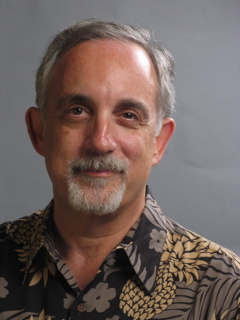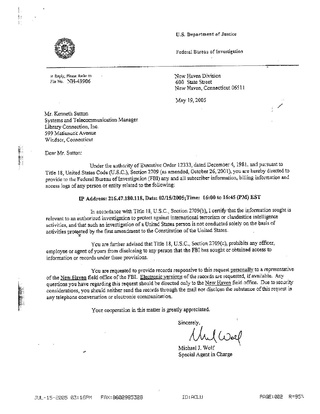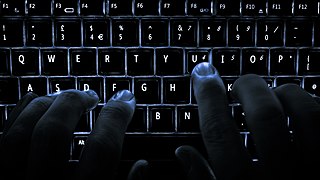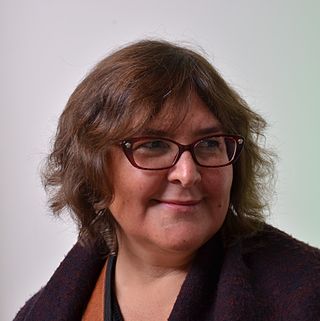Related Research Articles

John Perry Barlow was an American poet, essayist, cattle rancher, and cyberlibertarian political activist who had been associated with both the Democratic and Republican parties. He was also a lyricist for the Grateful Dead, a founding member of the Electronic Frontier Foundation and the Freedom of the Press Foundation, and an early fellow at Harvard University's Berkman Klein Center for Internet & Society.

Mitchell David Kapor is an American entrepreneur best known for his work as an application developer in the early days of the personal computer software industry, later founding Lotus, where he was instrumental in developing the Lotus 1-2-3 spreadsheet. He left Lotus in 1986. In 1990 with John Perry Barlow and John Gilmore, he co-founded the Electronic Frontier Foundation, and served as its chairman until 1994. In 2003, he became the founding chair of the Mozilla Foundation, creator of the open source web browser Firefox. Kapor has been an investor in the personal computing industry, and supporter of social causes via Kapor Capital and the Kapor Center. He serves on the board of SMASH, a non-profit founded by his wife, Freada Kapor Klein, to help underrepresented scholars hone their STEM knowledge while building personal networks and skills for careers in tech and the sciences.
The information superhighway is a late-20th-century descriptive phrase that aspirationally referred to the increasingly mainstream availability of digital communication systems.

The EFF Award, formerly EFF Pioneer Award, is an annual prize by the Electronic Frontier Foundation (EFF) for people who have made significant contributions to the empowerment of individuals in using computers.

The Whole Earth 'Lectronic Link, normally shortened to The WELL or The Well, is a virtual community that was launched in 1985. It is one of the oldest continuously operating virtual communities. By 1993 it had 7,000 members, a staff of 12, and gross annual income of $2 million. A 1997 feature in Wired magazine called it "The world's most influential online community." In 2012, when it was last publicly offered for sale, it had 2,693 members. It is best known for its Internet forums, but also provides email, shell accounts, and web pages. Discussion topics are organized into conferences that cover broad areas of interest. User anonymity is prohibited.
Trespass to chattels, also called trespass to personalty or trespass to personal property, is a tort whereby the infringing party has intentionally interfered with another person's lawful possession of a chattel. The interference can be any physical contact with the chattel in a quantifiable way, or any dispossession of the chattel. As opposed to the greater wrong of conversion, trespass to chattels is argued to be actionable per se.

Electronic Frontiers Australia Inc. (EFA) is a non-profit Australian national non-government organisation representing Internet users concerned with online liberties and rights. It has been vocal on the issue of Internet censorship in Australia.
Electronic Frontier Canada (EFC) was a Canadian on-line civil rights organization founded to ensure that the principles embodied in the Canadian Charter of Rights and Freedoms remain protected as new computing, communications, and information technologies are introduced into Canadian society. As of 2005, the organization is no longer active.
Electronic Frontiers Georgia (EFGA) is a non-profit organization in the US state of Georgia focusing on issues related to cyber law and free speech. It was founded in 1995 by Tom Cross, Robert Costner, Chris Farris, and Robbie Honerkamp, primarily in response to the Communications Decency Act.

Cindy Cohn is an American civil liberties attorney specializing in Internet law. She represented Daniel J. Bernstein and the Electronic Frontier Foundation in Bernstein v. United States.

Al Gore is a United States politician who served successively in the House of Representatives, the Senate, and as the Vice President from 1993 to 2001. In the 1980s and 1990s, he promoted legislation that funded an expansion of the ARPANET, allowing greater public access, and helping to develop the Internet.

John Doe v. Alberto R. Gonzales was a case in which the American Civil Liberties Union (ACLU), Library Connection, and several then-pseudonymous librarians, challenged Section 2709 of the Patriot Act; it was consolidated on appeal with a separate case, Doe v. Ashcroft.

Cyberethics is "a branch of ethics concerned with behavior in an online environment". In another definition, it is the "exploration of the entire range of ethical and moral issues that arise in cyberspace" while cyberspace is understood to be "the electronic worlds made visible by the Internet." For years, various governments have enacted regulations while organizations have defined policies about cyberethics.
Information technology law, also known as information, communication and technology law or cyberlaw, concerns the juridical regulation of information technology, its possibilities and the consequences of its use, including computing, software coding, artificial intelligence, the internet and virtual worlds. The ICT field of law comprises elements of various branches of law, originating under various acts or statutes of parliaments, the common and continental law and international law. Some important areas it covers are information and data, communication, and information technology, both software and hardware and technical communications technology, including coding and protocols.
The Electronic Frontier Foundation (EFF) is an international non-profit digital rights group based in San Francisco, California. It was founded in 1990 to promote Internet civil liberties.
The Electronic Frontier Foundation (EFF) is an international non-profit advocacy and legal organization based in the United States and serves its operations worldwide.
David R. Johnson is an American lawyer specializing in computer communications. He is a senior fellow at Center for Democracy and Technology, and a former chairman of the Electronic Frontier Foundation.

Anriette Esterhuysen is a human rights defender and computer networking pioneer from South Africa. She has pioneered the use of Internet and Communications Technologies (ICTs) to promote social justice in South Africa and throughout the world, focusing on affordable Internet access. She was the executive director of the Association for Progressive Communications from 2000 until April 2017, when she became APC's Director of Policy and Strategy. In November 2019 United Nations Secretary-General António Guterres appointed Esterhuysen to chair the Internet Governance Forum’s Multistakeholder Advisory Group.

Eisa Zarepour is an Iranian conservative politician who has been served as Minister of Information and Communications Technology from 2021 to 2024 in the government of President Ebrahim Raisi.
Cliff Figallo was an American planner, designer and manager of social media platforms. He was a member of The Farm, an intentional community founded in 1971, and helped create The WELL, one of the earliest online communities in America, the Table Talk online discussion forum for Salon.com and the Electronic Frontier Foundation.
References
- Scientific American September 1991 (Special Issue: Communications, Computers, and Networks), Volume 265, Number 3.